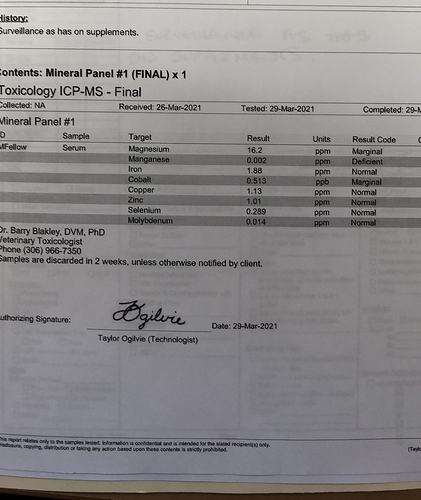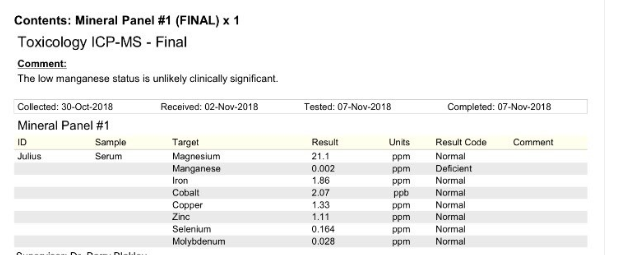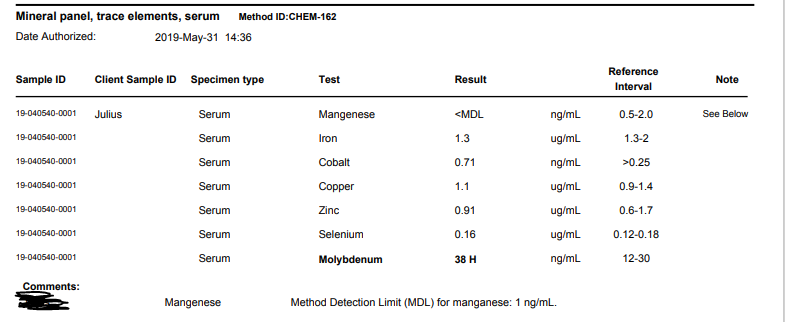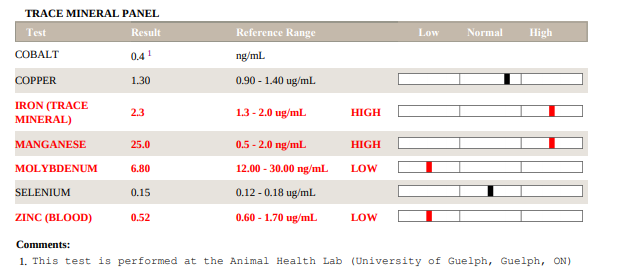Does anyone have experience with a manganese deficiency?
Had a mineral panel run last week and horsie came back with low Mn (0.002ppm). Vet said this is quite strange and is going to research before she’s out again next week and we’ll talk more. Interestingly enough, low Mn is associated(but not confirmed) with limb abnormalities and he does indeed have congenital contracted tendons… It’s also used it joint cartilage and he has joint fusion from a young age…
I’m assuming this is a chronic deficiency. He’s always been on a complete ration so his nutritional needs should be met, FeedXL says he’s getting 168% of his daily Mn. His iron, copper, and zinc are all in normal limits.
Anyone see this before? From what i’m reading it’s not very common. Would megadosing Mn be enough or maybe he has some reason he’s not absorbing the Mn?





